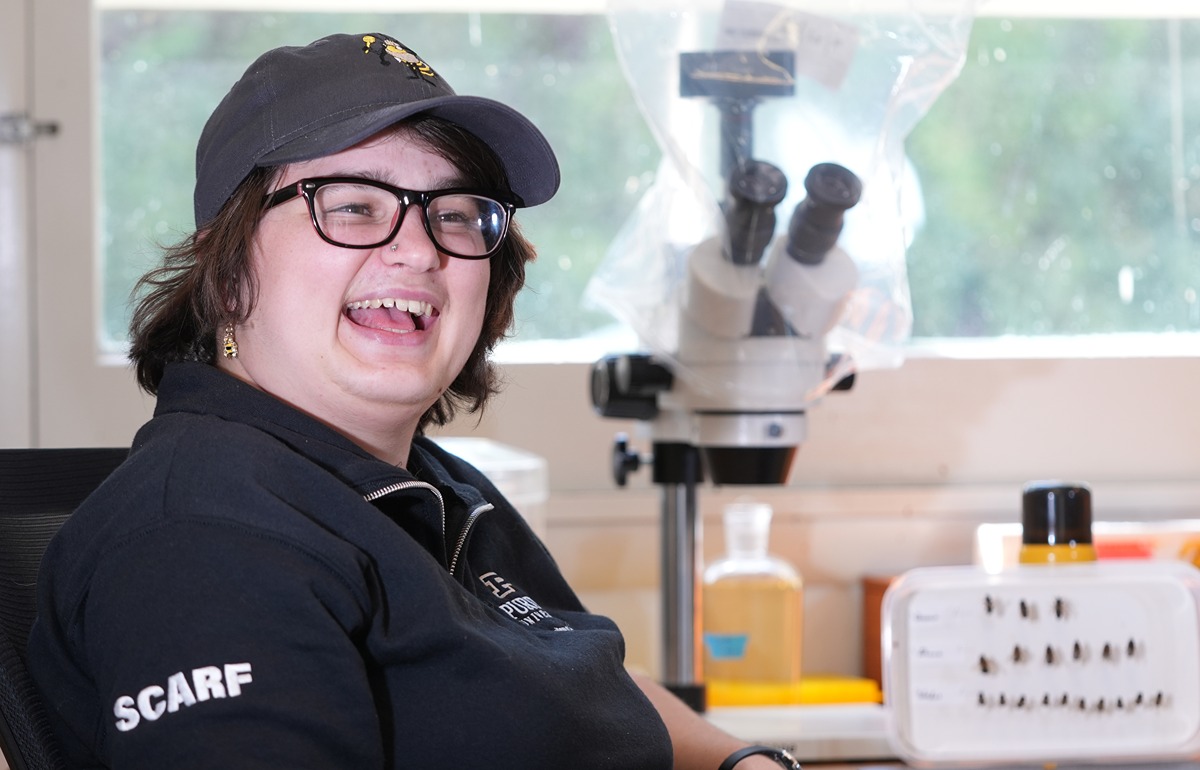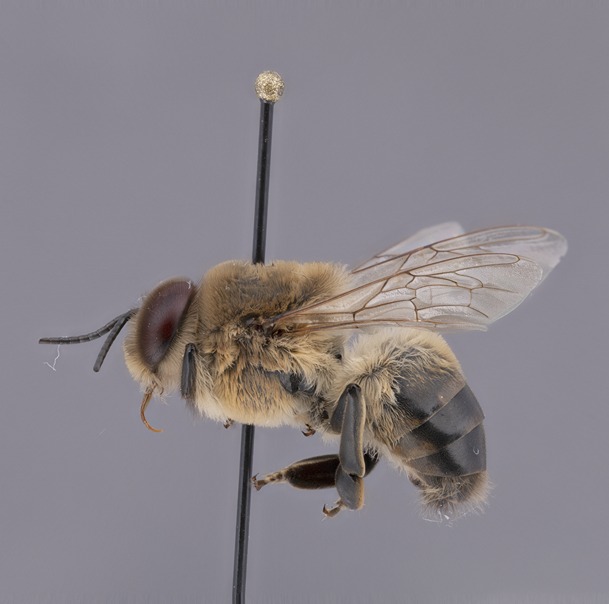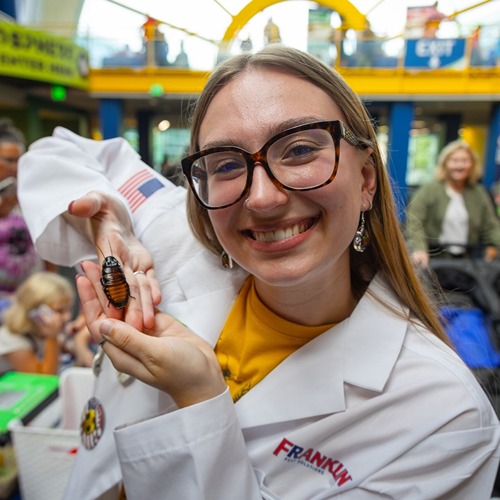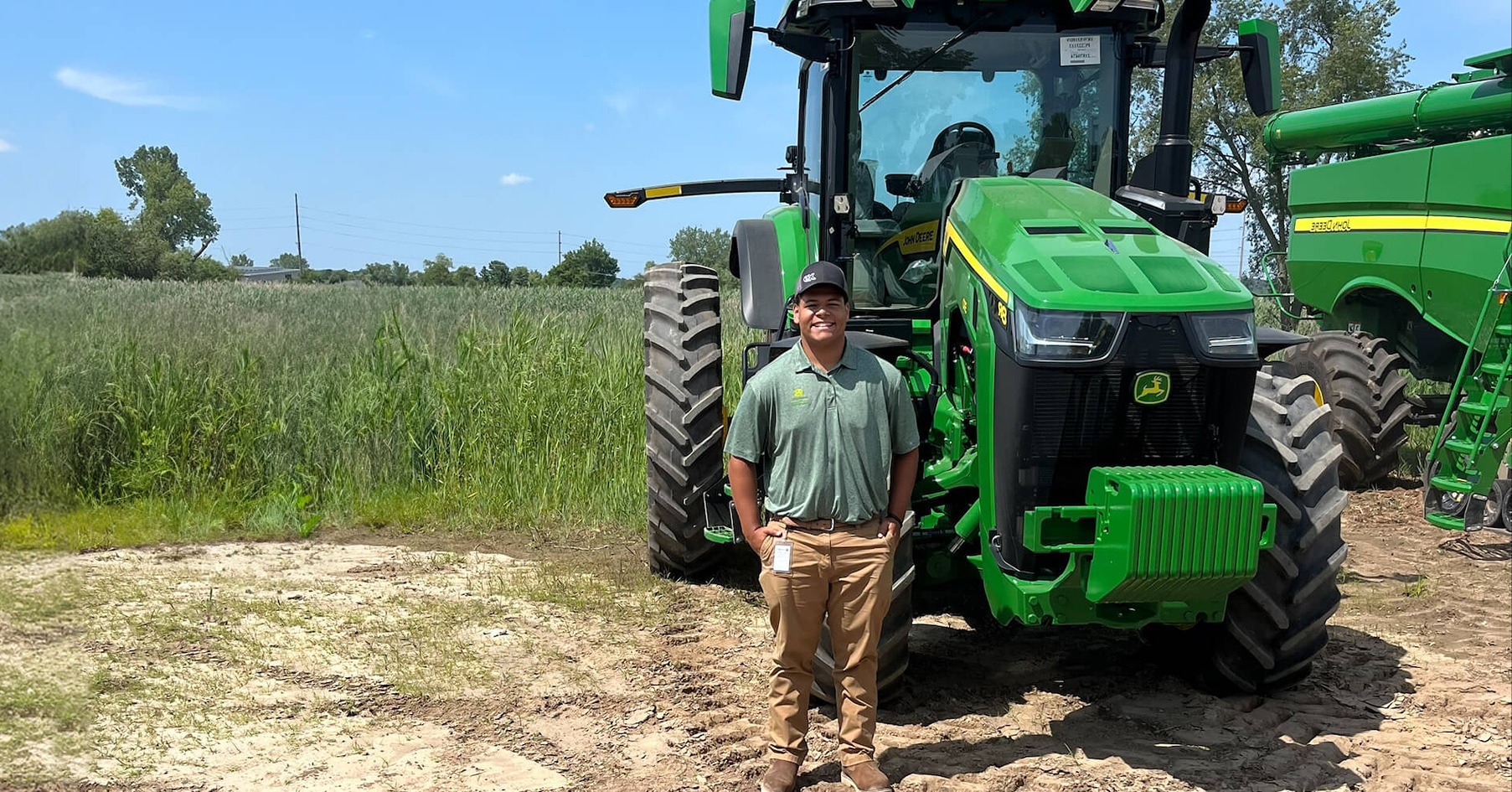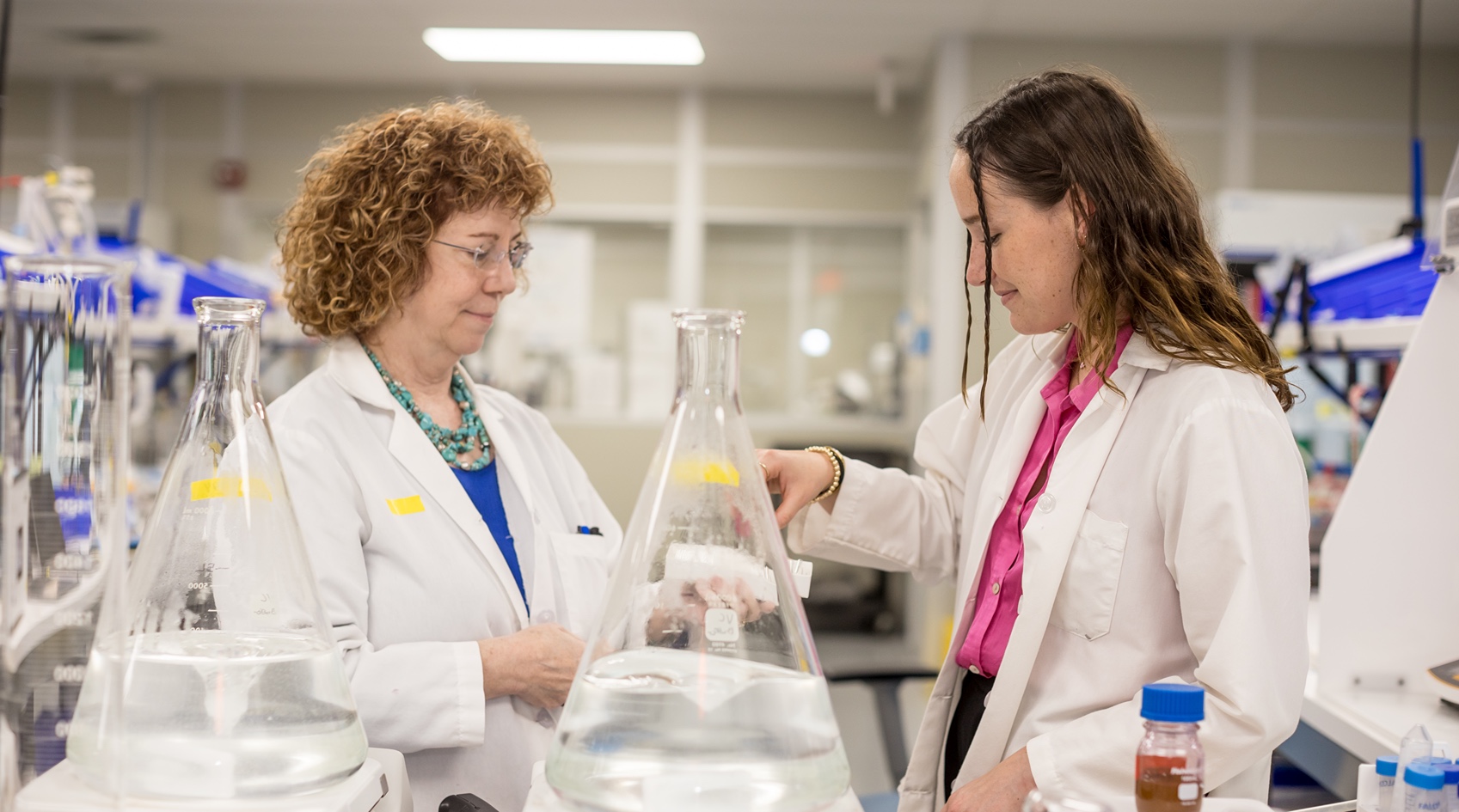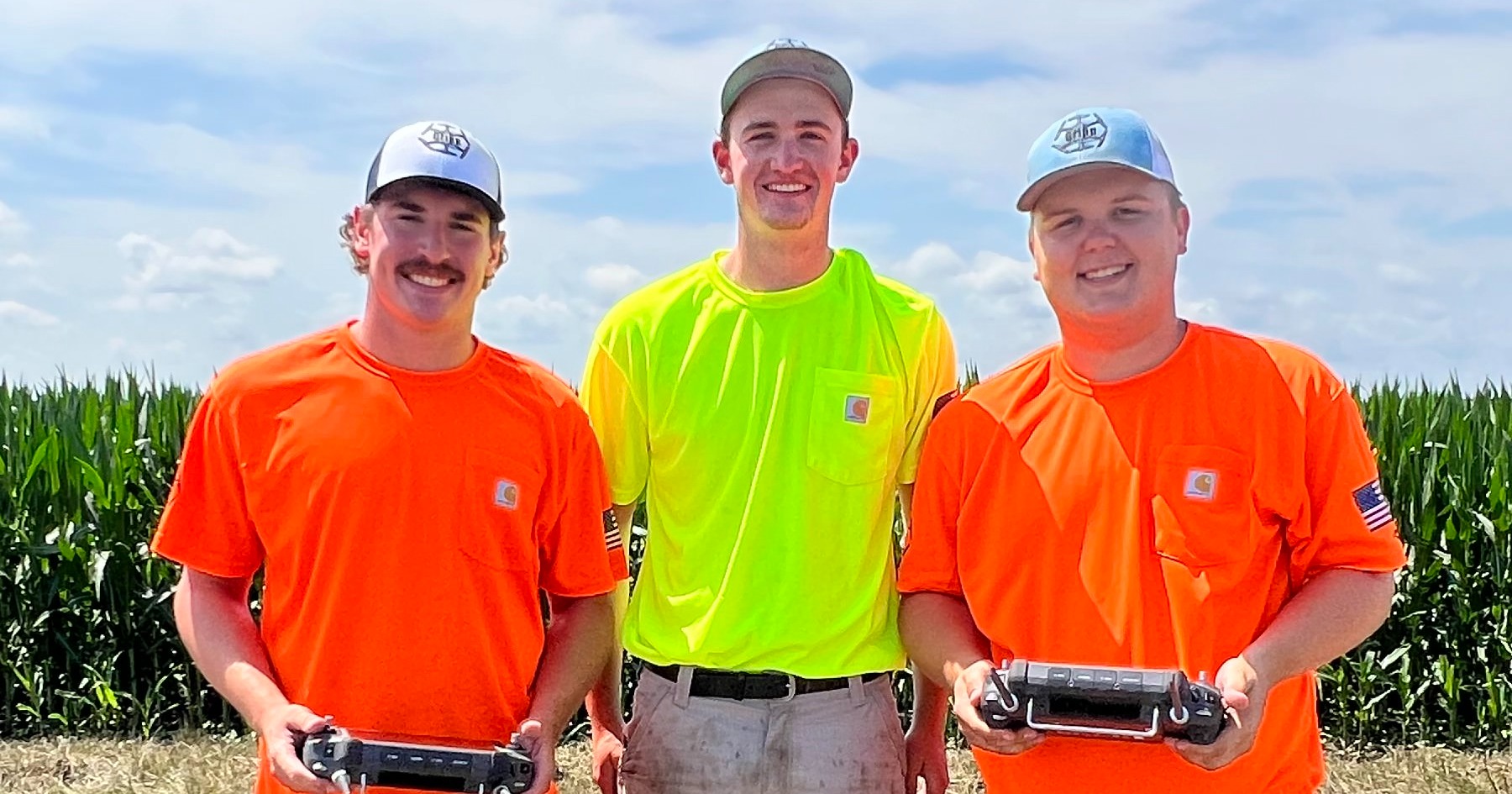Cultivating the Future: Izaak Gilchrist

The spider hanging upside down from the corner of your room and the silverfish that crawled out of your drain this morning might make you want to pack your bags and move away, but Izaak Gilchrist, a senior in insect biology, believes that there is a lot to love about these “creepy crawlies.”
Gilchrist chose to study entomology not only for a financially secure and stable future, but also because it connected them back to their sense of wonder. “I think most people, as kids, like bugs. I know my dad likes to tell a story of me as a kid being told repeatedly not to pick up spiders, and I just learned to pick them up when no one was looking.”
Their younger self would be proud to know that they never lost interest in bugs, and now their job requires regular handling of insects. During sophomore year, Gilchrist got an email saying that Brock Harpur’s lab in the entomology department was looking for help. Harpur’s research focuses on apiculture, or beekeeping. They study how the social culture of bees has evolved and developed, as well as work to breed bees that can better survive pests and changes in environmental conditions. Their bees are also the ones that make Boiler Bee Honey.
Gilchrist responded to the email and found their niche. They are grateful to be a part of the lab, and even more grateful to have a principal investigator like Harpur. “He's super supportive. There was one time when my bee suit ripped, and a bunch of bees got in. It was scary, and when I went inside, Brock was there to make sure I was okay.”
The lab is just as excited to have Gilchrist on board. When they approached Harpur last spring about starting an individual research project, he was thrilled to help them get funding through the Summer College of Agriculture Research Fellowship (SCARF) program at Purdue. Gilchrist spent the summer studying male honeybees, called drones. “I'm looking at how female worker bees evaluate the quality of drones. Basically, my research found that they are evaluating the males and picking up on certain cues to decide whether it's a good or a bad drone, and they'll kick out the bad ones.”
This research may be important for honeybee survival—knowing what makes a drone good or bad could have several impacts for bee breeding, and understanding the travel of drones between different hives could help generate patterns for disease spread in honeybee populations. Gilchrist is traveling to BeeCon on October 13 in Toronto and the Entomological Society of America Conference on November 6 in Maryland to present their research to other entomologists and beekeepers alike.
Gilchrist thinks their research has only scratched the surface, and they’re excited to keep studying drones.
“In high school, I would travel to community programs and beekeeper meetings. I didn’t have any bees or any way to keep them, I just loved them. Now I get to study them!”
- Izaak Gilchrist, senior in Insect Biology

